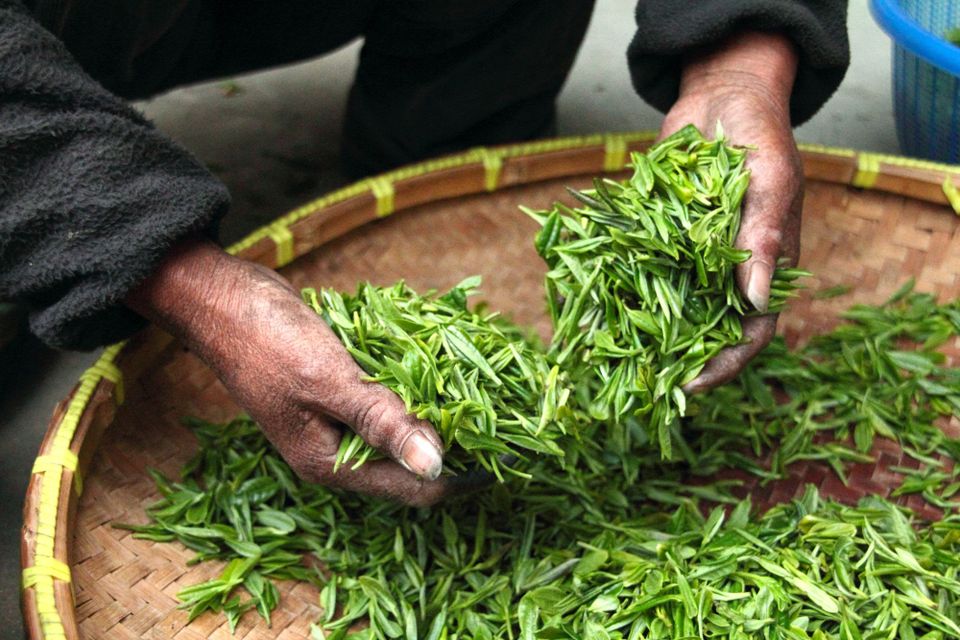How Tea Affected Humanity

Tea is the second most popular drink in the world, created by pouring boiling water over tea leaves picked from a plant called camelia sinensis. It was one of the factors which led to the globalisation of the world economy.
Tea is one of the most popular drinks in the world, second only to water.
According to a Chinese legend, the Chinese emperor Shen Nong accidentally discovered tea as he was heating up some water in his garden. A leaf from a nearby tree fell into his pot, altering the water’s colour and taste. As the emperor tasted the water, he was thrilled by its flavour and decided to find out more about the plant. The legend states that during his research, the emperor discovered healing properties in the tea leaf.
Although this story was merely a legend, several studies have indeed proved that tea provides a number of medicinal benefits. A few studies have even shown that tea drinkers may have a lower risk of dying from a heart attack or stroke.
However, while tea consumption may be healthy, too much of it can be dangerous. Mainly due to caffeine in the tea leaf, overconsumption of tea can cause stress, anxiety and restlessness. It can even affect your sleep cycle, leaving you tired and sluggish.

The British empire is one of the largest consumers of tea and was involved in spreading tea from China to India, and as a result, it helped develop the world’s economy, but it also caused illegal trades and wars such as the opium wars.
The first opium war (1839-1842) was caused by a trade disagreement between China and Britain. The British wanted tea from China but they didn’t have much to trade for it, as the Chinese economy was self-sufficient. Because of this, the British had to trade valuable resources in exchange for tea.
To balance the trade between Britain and China, the British East India Company started growing opium in Bengal which was then exported to China. This trade was successful for the British as the demand for opium would increase in China, allowing the British to get their hands on more tea. However, opium was a harmful drug that had a very strong effect when smoked, so in 1839 the Chinese emperor tried to stop the opium trade by destroying the opium which was brought into China. As a result, the British declared war on China. China was defeated in this war and was forced to sign the treaty of Nanking which gave Britain the upper hand in the trade with China.
By now you are probably asking yourself why the British went through so much effort just for a cup of tea. While the exact reason for Britain’s desire for tea is unclear, it was probably because tea was so popular at the time. At first, tea was mainly consumed among the aristocracy because it was so expensive. However, in the 18th Century tea became so famous that everyone wanted it. In fact, the demand for tea increased to the point where people began smuggling tea into the country illegally. Because of this, the tax for tea went from 119% to 12.5%, allowing everyone to enjoy the drink.
Today, tea is consumed all over the world for special occasions, social gatherings, tea parties or even as a light meal with biscuits or cake. The three main types of tea are black tea, green tea and oolong tea. Black tea leaves are bruised (rolled, twisted and crushed), wilted and fully oxidized. The same is done to oolong tea leaves, except they are only partially oxidized. Green tea leaves are neither wilted nor oxidized. The tea is prepared by pouring boiling water over the tea leaves, which are normally kept in a strainer or tea bag to be removed once the tea is ready. Other products such as herbs, spices, sugar and milk may be added to improve its flavour.
While tea may be a simple beverage, it had quite an impact on the world, from improving global trade to becoming an important part of our individual daily lives.
References
Wikipedia - The First Opium War
Author biography
Yousuf Sharif Ahmed is a 16-year-old student born in Male’, Maldives. He has recently completed his O level exams and enjoys coding and working with electronic components.
Cite this article as:
Yousuf Sharif Ahmed, How Tea Affected Humanity, theCircle Composition, Volume 1, (2021). https://thecirclecomposition.org/how-tea-affected-humanity/
